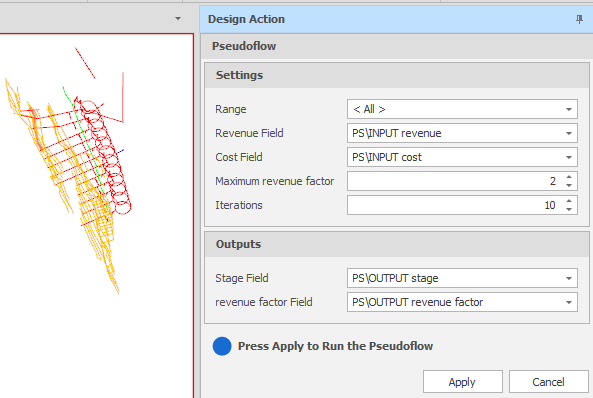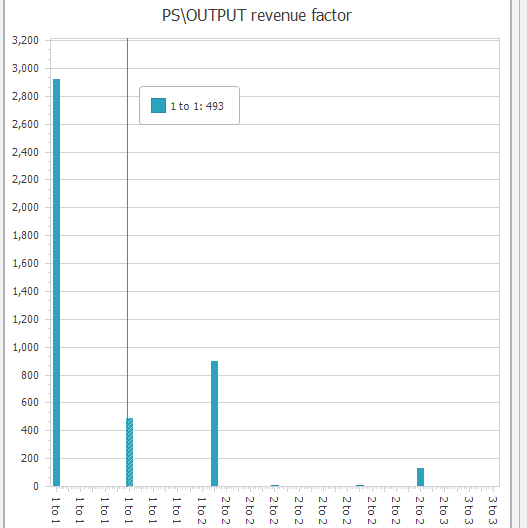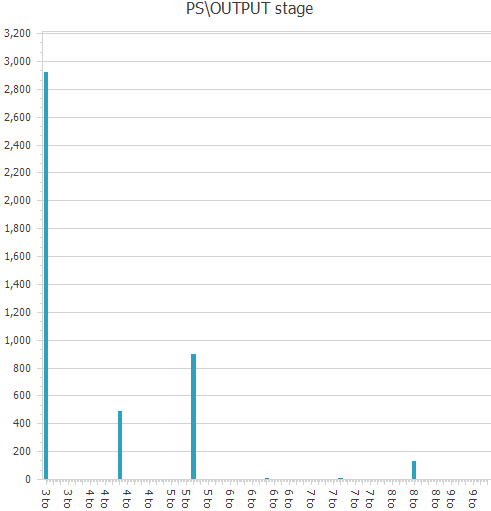Pseudoflow
![]()
The Pseudoflow algorithm gets the range of solids which when mined produce the maximum value. The Revenue Factor reduces the revenue while keeping the profit the same to “test” how much you have to reduce the revenue before a solid becomes unprofitable. Tasks with a lower revenue factor are “more desirable”.
Settings
Range
Set the Source (Picked or Text) Range that the algorithm is ran over.
Revenue Field
Select the field in the source table of the current scenario that contains the revenue that can be gained from its respective table node. This is likely a calculated field or a field imported alongside other table data.
Cost Field
Select the field in the source table of the current scenario that contains the amount its respective table node costs to mine. This is likely a calculated field or a field imported alongside other table data.
Maximum Revenue Factor
Use the spin controls to adjust the maximum revenue factor. The default is 1.
Iterations
Use the spin controls to adjust the number of iterations. The default is 10.

Output
Stage Field
Specify the field in the source table of the current scenario that contains the grouping values used to aggregate the calculated revenue at each mining stage.
Revenue Factor Field
Specify the field in the source table of the current scenario to which the calculated revenue factors will be written. Revenue factors provide an indication of “profitability” based on your specified inputs and the dependencies of the schedule.
Apply
Click Apply to run the pseudoflow algorithm. Progress is shown on the status bar.

To check that values have been written to the records in the source table, right-click on the table and select Utilities | Field Statistics:
The field statistics of the Revenue Factor field should look something like this:

The field statistics of the Stage field should look something like this:
